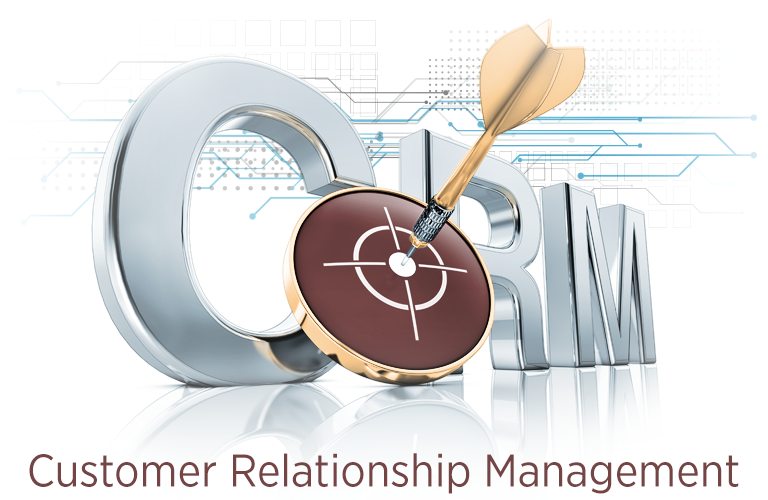As the world moves deeper into a technological space working faster and more efficient, how are you keeping up?
Although file cabinets filled with old client data and Excel spreadsheets may have worked at one time or another, this system has proven to slow business down drastically, losing you money.
Customer relationship management (CRM) tools, on the other hand, are built with the intention to keep track of all those client records.
These client records can range from basic client information including contact information, birthdates, or household information, to detailed client account information and values. A CRM can also be web-based, while some are actual software that gets installed on your computer.
What are Some Benefits of a CRM?
1. Increased Efficiency
Hands down the number one benefit of implementing a CRM is an increase in efficiency. Keeping everything in one central location rather than scrambling to remember what folder or spreadsheet something is in will cut down working time dramatically. CRMs also allow for simple automations that may otherwise take a team member minutes to hours to complete.
2. Easier Access to Data
If your office is working from a CRM, no matter what client calls in at what time, anyone who answers the phone will have that client information right in front of them. Gone are the days of sifting through file cabinets to find that one piece of needed information. A simple search within an organized CRM will allow data to be accessed at the snap of a finger.
3. Security
It seems like every other day we hear about cybersecurity breaches, however, if you follow safe protocols when using a CRM, that information is still more secure than if it’s physically stored in your office. Physically-stored files within an office are prone to break-ins, fires, floods, and more; which would then leave your office completely lost. Not only does a CRM protect against outside factors, but with permissions integrated into the system, they allow only certain people within the office to access specific data, making CRMs even more secure.
4. A Greener & Paperless Office
If your office dream is to be paperless, the easiest start to that venture is to invest in a CRM. Most CRMs have extensive file storage and organization. This can typically be organized by contact type, file type, date, etc. – much like your computer’s native file viewer. The beauty of keeping your files within the organized CRM is that if you have multiple people working in your office, as soon as someone uploads a file to the CRM, it’s accessible by everyone else in the office who has permission to view it. Transitioning to a paperless office is a difficult and ongoing task, but it brings us to our next benefit…
5. You’re No Longer Bound to Your Desk
Transitioning to a paperless office allows you to break free of the constraints that hold you to your desk. Write an e-application with a client from your computer, phone, or tablet anywhere and watch that application load directly into your CRM. A year later, you’ll be able to meet that client at a coffee shop for a meeting and have all their information right at your fingertips.On the road? Most CRMs either have an app or are mobile-friendly to give you all of your data right to your phone.
6. Accountability Within the Office
Are you writing to-dos on post-its and sticking them on your assistant’s desk? How can you be sure those tasks are actually getting done? CRMs allow for task tracking, adding accountability to all office staff within your business. No longer miss those client birthday calls or policy follow-ups!
7. Full Circle Client Tracking
Many CRMs go beyond keeping simple client records and include features such as marketing tracking capabilities. Track the client from their first seminar to first piece of business written. This lets you identify trends within your business, pinpoint what needs work as well as what is currently working well.
8. Client Transparency
If client transparency is important to your office, you can invest in a CRM that offers a client-facing portal. This’ll allow the client access to their own information including account values. Technology is with everyone these days, and your clients aren’t blind to that. They want to be able to view their own information easily without having to reach out and request an appointment with you.
You may think this could decrease your client interactions (and it may), but as soon as your client sees something increase or decrease within their accounts, they will most likely reach out to chat about it. This should increase the amount of “quality talks” with clients, rather than check-ins that don’t go anywhere.
Bottom Line
With an increase in office efficiencies, accountability, tracking, and security, it’s unlikely your office will lose with the investment of a solid CRM. Luckily for you, we have our very own Force CRM available to our partnered advisors. Contact us today to be on your way to a better office experience.

